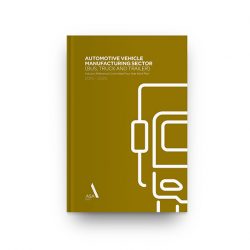Welcome to part two in our series on the Automotive Vehicle Manufacturing Sector IRC Four Year Work Plan. In this part, we’ll be taking a closer look at the 4-year plan for the Heavy Vehicle sector. This is a fantastic document directed by the Australian Industry and Skills Committee who commissioned the Industry Reference Committees (IRC), in partnership with Auto Skills Australia, to create a new model for developing and maintaining training packages.
In our last post, we focused on the 4-year plan for Vehicle Manufacturing (bus, truck and trailer). This looked at the employment and geographical distribution of businesses across the bus, truck and trailer industry, peak bodies and regulations, existing occupations and training required to get into this industry. It also highlighted the manufacturing industry trends and challenges, sector opportunities, as well as employment and skills outlook to 2020. If you haven’t read it, catch up on what you missed before you continue reading.
Heavy vehicle sector at a glance
Businesses in the mechanical heavy vehicle sector encompasses both repair and service work for heavy vehicles, including agricultural machinery, heavy commercial vehicles and mobile plant machinery.
As of 2015, there are a whopping 12,449 heavy vehicle businesses in Australia, employing 57,000 people. Of these businesses, 70% of them are small businesses, with less than 20 staff on the books. Only four heavy vehicle businesses employ more than 200 employees. New South Wales boasts the largest number of automotive businesses in the heavy vehicle sector (3,468 businesses) followed by Queensland (3,157) and Victoria (2,726 businesses).
The automotive mechanical heavy vehicle sector contributes $3.5 billion to the Australian economy, and is expected to grow by 2.4% by 2020. It’s subject to the Australian Design Rules, which dictate safety and emissions standards for all heavy vehicles. As of 2014, all heavy vehicles in Australia must comply with the Heavy Vehicle National Law, while any modifications must adhere to the VSB6 Code of Practice – Heavy Vehicle Modifications.
What are the existing occupations for entrants and workers
- Automotive business owner
- Automotive workshop foreman/supervisor
- Automotive advanced master technician/ diagnostic technician
- Automotive master technician/diagnostic technician
- Automotive overhauler
- Automotive senior tyre fitter/ tyre fitter supervisor/ tyre fitter leading hand
- Agricultural Mechanical Technician
- Heavy Commercial Vehicle Technician
- Mobile Plant Technician
- Automotive Diesel Fuel Technician/ Specialist
- Automotive Diesel Engine Technician/ Specialist
- Forklift Technician
- Trailer Technician
- Elevating Work Platform Technician
- Automotive service-person
- Automotive tyre fitter/service-person
Training packages and qualifications required
There are many certificates one can undertake, depending on the specialty they’d like to pursue. The options available are a Certificate III in Agricultural Mechanical Technology, Certificate III in Heavy Commercial Vehicle Mechanical Technology, Certificate III in Mobile Plant Technology, Certificate III in Automotive Diesel Fuel Technology, Certificate III in Automotive Diesel Engine Technology, Certificate III in Forklift Technology, Certificate III in Heavy Commercial Trailer Technology, Certificate III in Elevating Work Platform Technology and Certificate III in Automotive Tyre Management.
Sector employment trends and challenges
There are a few significant trends this sector of the industry that could make or stall progress. The first being accelerated technological change particularly in automation, alternative fuel opportunities and the emergence of hybrid electric componentry of heavy machinery. All of which requires a high level of technological skill, which is something that the industry is facing a shortage of.
Throughout all areas (transport, mining, construction, agriculture and private expenditure on machinery and equipment) there is a strong demand for maintenance and repair of heavy machinery to minimise disruption to supply chains
According to Auto Skills Australia, there is strong growth for heavy vehicle technicians across all states until 2020. Of all the positions available, diesel motor mechanics and heavy vehicle technicians are facing the largest shortage, with Queensland reporting the largest shortage rates.
For emerging occupations, many job-seekers will see a need for sophisticated technical skills for working complex and modern machinery, as well as customer service representatives, who will bridge the gap between technician and customer.
You’ve made it to the end of our series on the Automotive IRC 4-year work plans. The IRC’s plans will act as a living document and a great guide for those working in the automotive industry.
The Drake Group merges the knowledge, skills and talents of trailer manufacturers Drake Trailers, O’Phee Trailers and Drake Collectibles. Contact us today to learn more about our heavy transport trailers or our apprenticeship programs.
